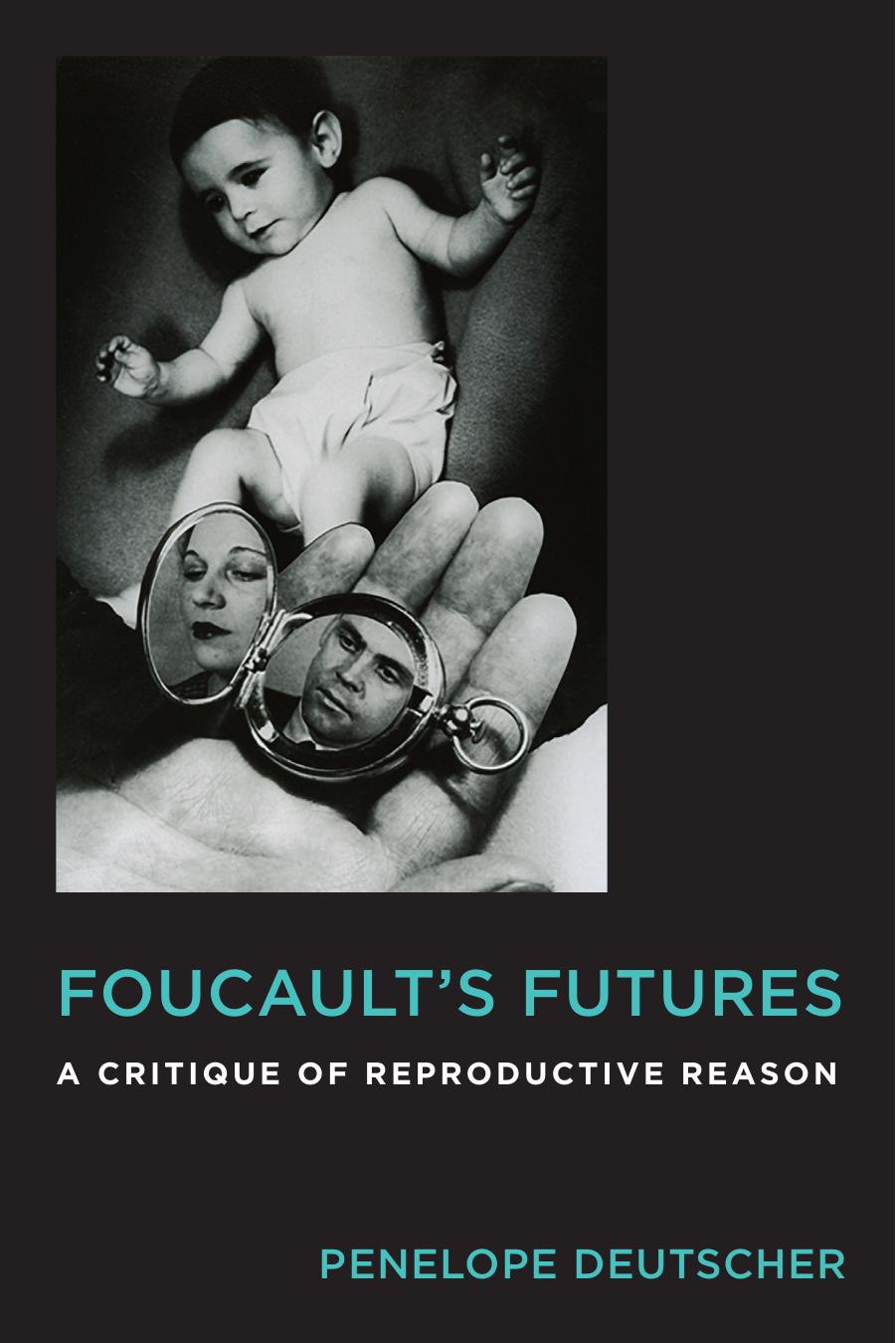Foucault's Futures: A Critique of Reproductive Reason by Penelope Deutscher

Author:Penelope Deutscher [Deutscher, Penelope]
Language: eng
Format: epub, pdf
Tags: Philosophy, Movements, Critical Theory, Post-Structuralism, Social Science, Gender Studies, Feminism & Feminist Theory, Political
ISBN: 9780231544559
Google: OsVZDgAAQBAJ
Publisher: ColumbiaUP
Published: 2017-04-04T21:28:58+00:00
PRECARIOUS LIFE
Among the many quarters in which biopolitical theory has provoked caution, Judith Butler has, in her preface to Frames of War, characterized the following nervousness on the left: âIt is difficult for those on the Left to think about a discourse of âlife,â since we are used to thinking of those who favor increased reproductive freedoms as âpro-choiceâ and those who oppose them as âpro-life.ââ1 The context for these remarks is Butlerâs development of the concept of precarious life. Only rarely has she used the terms biopower and biopolitics.2 Although related problems are considered in her work, she has contrasted her approach to studies that âsituate the discourse of life within the sphere of biopolitics and of biomedicalization more specifically.â Rather than grouping herself with post-Foucauldian biopolitical theorists, she has identified herself more as a compagnon de route.3 Differentiating her own interest from genealogies of life or death, she sees âprecariousness as something both presupposed and managed byâ biopolitical administrations of life which not only rely on but also contribute to the framing and apprehension of life (FW 17â18). Speaking to the further level of precariousness embedded in the very availability of âlifeâ to be managed (or reduced or precluded) by biopolitics, she has asked:
Can life ever be considered âbareâ? And has not life been already entered into the political field in ways that are clearly irreversible? The question of when and where life begins and ends, the means and legitimate uses of reproductive technology, the quarrels over whether life should be conceived as cell or tissue, all these are clearly questions of life and questions of powerâextensions of biopower in ways that suggest that no simple exclusionary logic can be set up between life and politics. Or, rather, any effort to establish such an exclusionary logic depends upon the depoliticization of life and, once again, writes out the matters of gender, menial labor, and reproduction from the field of the political.4
Precariousness adds to an earlier and extensive use of the term vulnerability (Excitable Speech, The Psychic Life of Power, Giving an Account of Oneself) to describe subjects as originally dependent on others in a number of ways (for example, for the language that installs us as speaking subjects concurrently vulnerable to one another,5 including the vulnerability to being named in injurious ways by the very language which brings us into being,6âthus language can simultaneously install subjects as human while embodying the terms and names that render some humans less than human). The Psychic Life of Power uses vulnerability to characterize âterms of power that one never made but ⦠on which one depends in order to be.â7 Here Butler favors the terms power and recognition to characterize the formative dilemma of the subject. A subject seeksâmay passionately seek (PLP 113)âa necessary recognition (by individual and collective others) that simultaneously confers its subordination. This is true of processes of recognition of individual subjects and true also of the ways in which we belong to collective, social categories: for âsocial categories signify subordination and existence at onceâ (PLP 20).
Download
Foucault's Futures: A Critique of Reproductive Reason by Penelope Deutscher.pdf
This site does not store any files on its server. We only index and link to content provided by other sites. Please contact the content providers to delete copyright contents if any and email us, we'll remove relevant links or contents immediately.
| Deconstruction | Existentialism |
| Humanism | Phenomenology |
| Pragmatism | Rationalism |
| Structuralism | Transcendentalism |
| Utilitarianism |
The remains of the day by Kazuo Ishiguro(8956)
Tools of Titans by Timothy Ferriss(8354)
Giovanni's Room by James Baldwin(7307)
The Black Swan by Nassim Nicholas Taleb(7092)
Inner Engineering: A Yogi's Guide to Joy by Sadhguru(6779)
The Way of Zen by Alan W. Watts(6583)
Asking the Right Questions: A Guide to Critical Thinking by M. Neil Browne & Stuart M. Keeley(5745)
The Power of Now: A Guide to Spiritual Enlightenment by Eckhart Tolle(5735)
The Six Wives Of Henry VIII (WOMEN IN HISTORY) by Fraser Antonia(5490)
Astrophysics for People in a Hurry by Neil DeGrasse Tyson(5171)
Housekeeping by Marilynne Robinson(4428)
12 Rules for Life by Jordan B. Peterson(4293)
Double Down (Diary of a Wimpy Kid Book 11) by Jeff Kinney(4254)
The Ethical Slut by Janet W. Hardy(4234)
Skin in the Game by Nassim Nicholas Taleb(4228)
Ikigai by Héctor García & Francesc Miralles(4226)
The Art of Happiness by The Dalai Lama(4117)
Skin in the Game: Hidden Asymmetries in Daily Life by Nassim Nicholas Taleb(3983)
Walking by Henry David Thoreau(3941)
